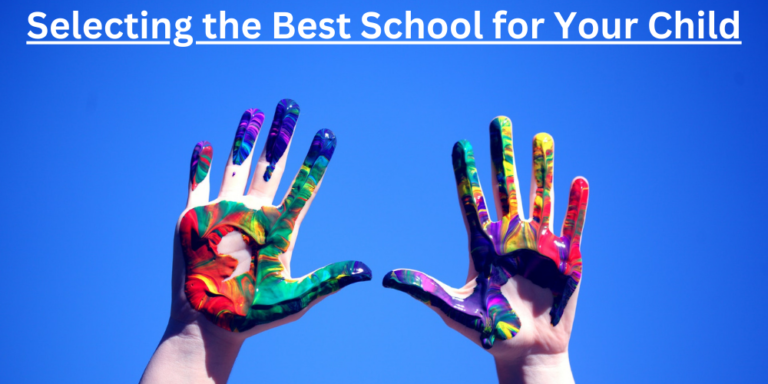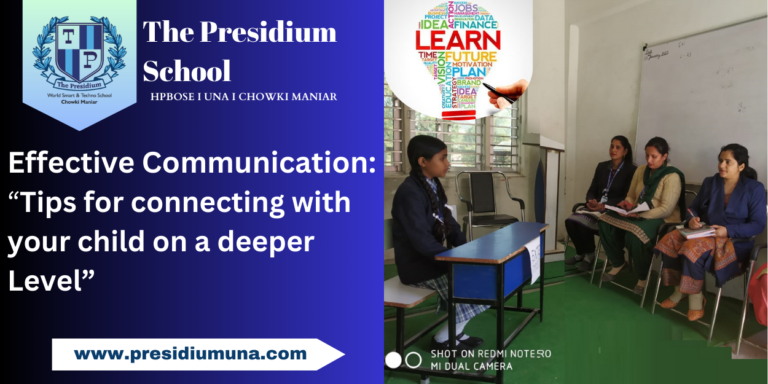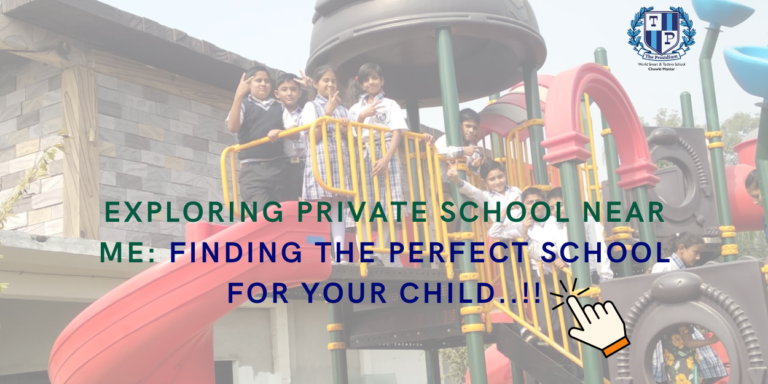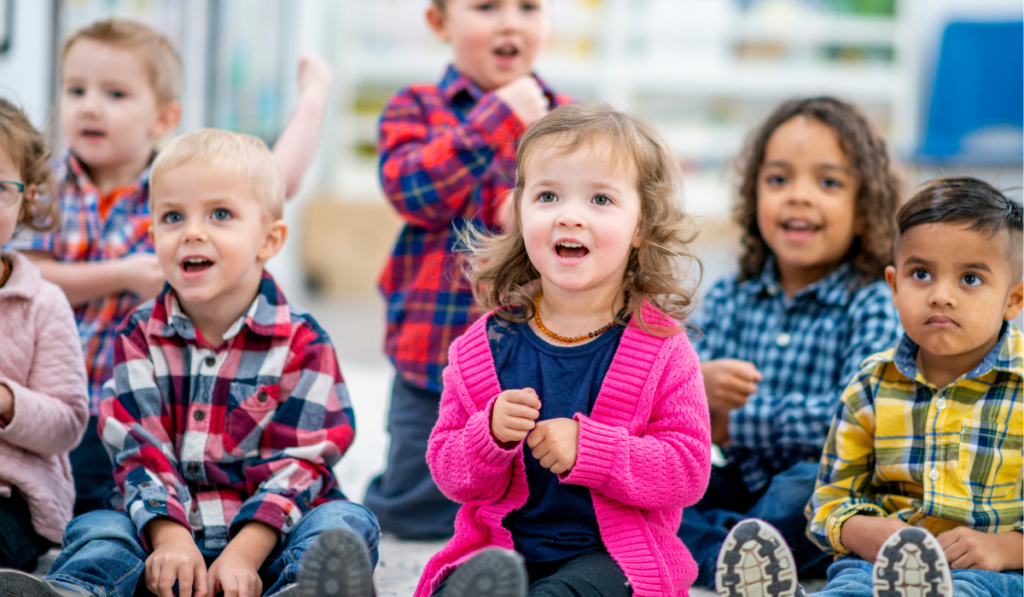
How to get children to study in kindergarten school
1. Language arts in kindergarten:
How to Hold a Pencil
You can make the child pretend that his or her stronger (writing) hand is an alligator in order to teach them the proper grip for holding a pencil.
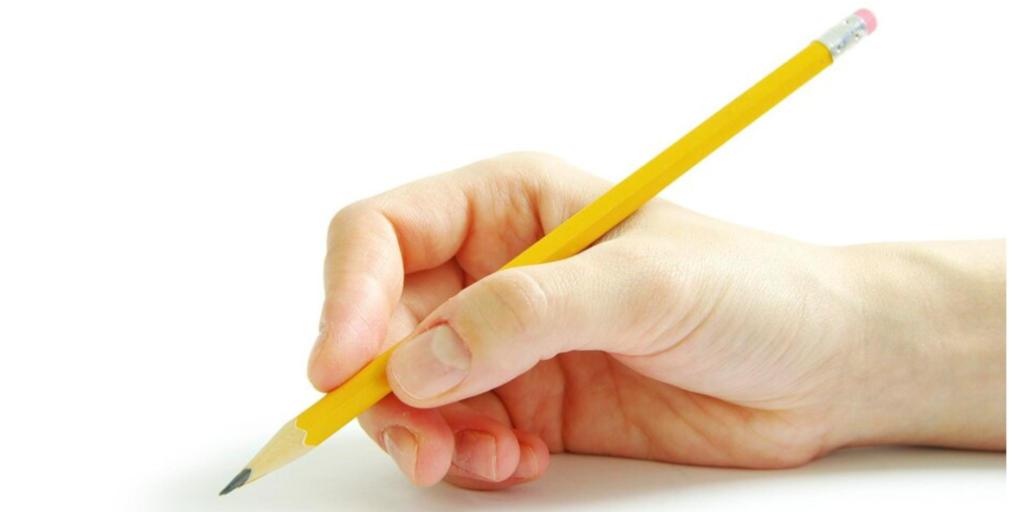
We provide free handwriting exercises that you may use to assist your child learn handwriting after they have mastered the proper grip of a pencil. You may instantly receive a copy of our free pre-handwriting practice worksheets by filling out the form below. We’ll add you to our mailing list so you can learn about tons of entertaining free kid-friendly activities. Email us at tpschooluna@gmail.com if you’re having any problems then go to our website https://presidiumuna.com/
The Letters of the Alphabet
The first step to reading and writing is to understand the letters of the alphabet. So prepare to memorize your ABCs and play your beloved alphabet song repeatedly!
Apart from letter recognition, phonics will also be given a lot of attention. Your child will pick up the sounds of every letter. They will be able to tell vowels from consonants by the end of the year, and they will start to comprehend the functions that each letter serves in a word.
Reading Picture Books and Event-books
Perhaps the most thrilling thing about kindergarten is learning to read. A child’s potential for learning is limitless once they pick up reading!
The kindergarten curriculum will emphasize short, easily sounded-out words and high-frequency visual words. Teachers want to promote students’ confidence in their reading.
Formatting their Name, Little Sentences, and Letters
An essential component of the kindergarten curriculum is writing. Your youngster will be able to:
- Write their own name
- Print both capital and lowercase letters
- Write little stories with few words.
Don’t worry if your kid finds writing difficult. At five and six years old, many children are still working on their fine motor skills. Your child’s scrawls will soon create readable words with a little practice!
Speech, Actions, and Dialogue
The verbal abilities of your child have significantly evolved since they were a toddler. But there’s still a lot to discover.
Your child’s conversational skills will continue to develop throughout kindergarten. Their vocabulary will grow with additional reading, new friends, and interaction with others.
2. Math in kindergarten:
Counting and numbers
By the time kindergarten ends, your youngster need to know all twenty numbers by memory. Furthermore, this goes well beyond simple rote counting.
Great math computation is frequently used in kindergarten classrooms to assist children in understanding abstract math topics. It doesn’t make much sense to associate the number “2” with the picture of two blocks. Providing your youngster with the opportunity to construct and generate numbers using tangible objects will help them remember this concept even better.
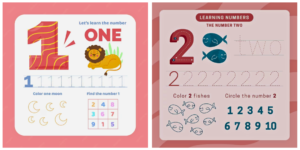
It’s also likely that your kid may pick up some simple skip counting. They’ll be able to count to ten, five, and two very soon. Even though they won’t completely address multiplication and division for a few years, this is a crucial initial step in those subjects.
Choose shapes
Here’s where geometry fundamentals begin. Your youngster will have lots of time to investigate simple three-dimensional forms as well as two-dimensional ones. The math toys that are used in classrooms can also have a significant impact on how well your youngster understands this concept.
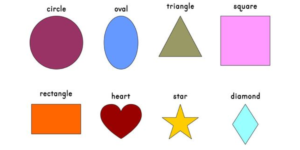
They will have the ability to view a shape from all angles and start to comprehend why a square is a square. Their foundational understanding of angles and sides will help kids succeed in arithmetic later on!
3. Science in Kindergarten:
Vegetation and Animals
Children’s first laboratory is nature because they are naturally interested beings. The natural world offers a wealth of knowledge! Children find plants and animals particularly appealing since they interact with them on a daily basis.
Your child’s kindergarten education will center on fundamental life cycles, such as those of frogs and butterflies. Additionally, kids will learn about the many parts of insects and flowers. One of the main focuses of early scientific education is labeling and identification.
The Human Body and the Five Senses
This year, “Head, Eyes, Arms, Ankles, and Feet’s” will be an important musical! Along with identifying and categorizing their own bodily parts.
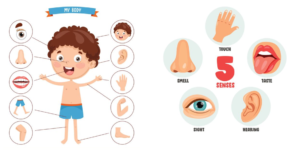
Kindergarten curriculum includes a significant section on the nature of the senses and how they function.
The Climate
For kindergarteners, the weather presents an excellent scientific topic because it’s something they experience on a daily basis. It influences what they wear and if kids can play outside. For a child of five or six, knowing the fundamentals of the water cycle or the reasons behind snowfall is interesting information.
Time
At this age, time is still nebulous and confusing, but your child can comprehend more than they could previously. One excellent technique to make time more concrete is through the school’s predetermined schedule. They have lunch at 10:30 a.m., get up at 7:30 a.m., and so on.
Students can pick up on this idea more rapidly with the use of visual schedules, such as this one from Teaching Mother.
4. Social Studies in Kindergarten:
Self and Community
Children are constantly trying to figure out where they fit in. Your youngster might learn a lot about the similarities and differences between people who live far away from them by asking them about their hobbies and family also it is duty of parent’s to choosing the best school for your wards .
Physical
Your youngster might be aware of their address or the state in which they reside. However, they may also find learning about the vast world outside of their daily existence to be interesting. Kindergarten is a great time to introduce students to different cultures, emphasizing cuisine and festivals.
Being Attentive
Although it’s not a child’s best quality, sitting and listening are crucial for academic success. They will be taught how to politely pay attention in kindergarten and given ample opportunity to become proficient in it.
Creating Friendships and Resolving Problems
Education is a collective effort. While it might be exhilarating, making new acquaintances is not always easy. A kindergarten teacher’s typical day includes helping the students resolve conflicts amongst friends.
Self-Control and Following to Standards
At this age, it is feasible to have more self-control, but it takes practice. School rules offer the ideal environment for children to exercise self-regulation and learn how to keep within reasonable bounds.
Make Comparisons with Everyday Things.
- Which stuffed toy is larger?
- Daddy or Mommy, who is greater?
- Is there any more food that this dish can hold?
All of these are excellent questions to help your child think through and pick up math ideas.

